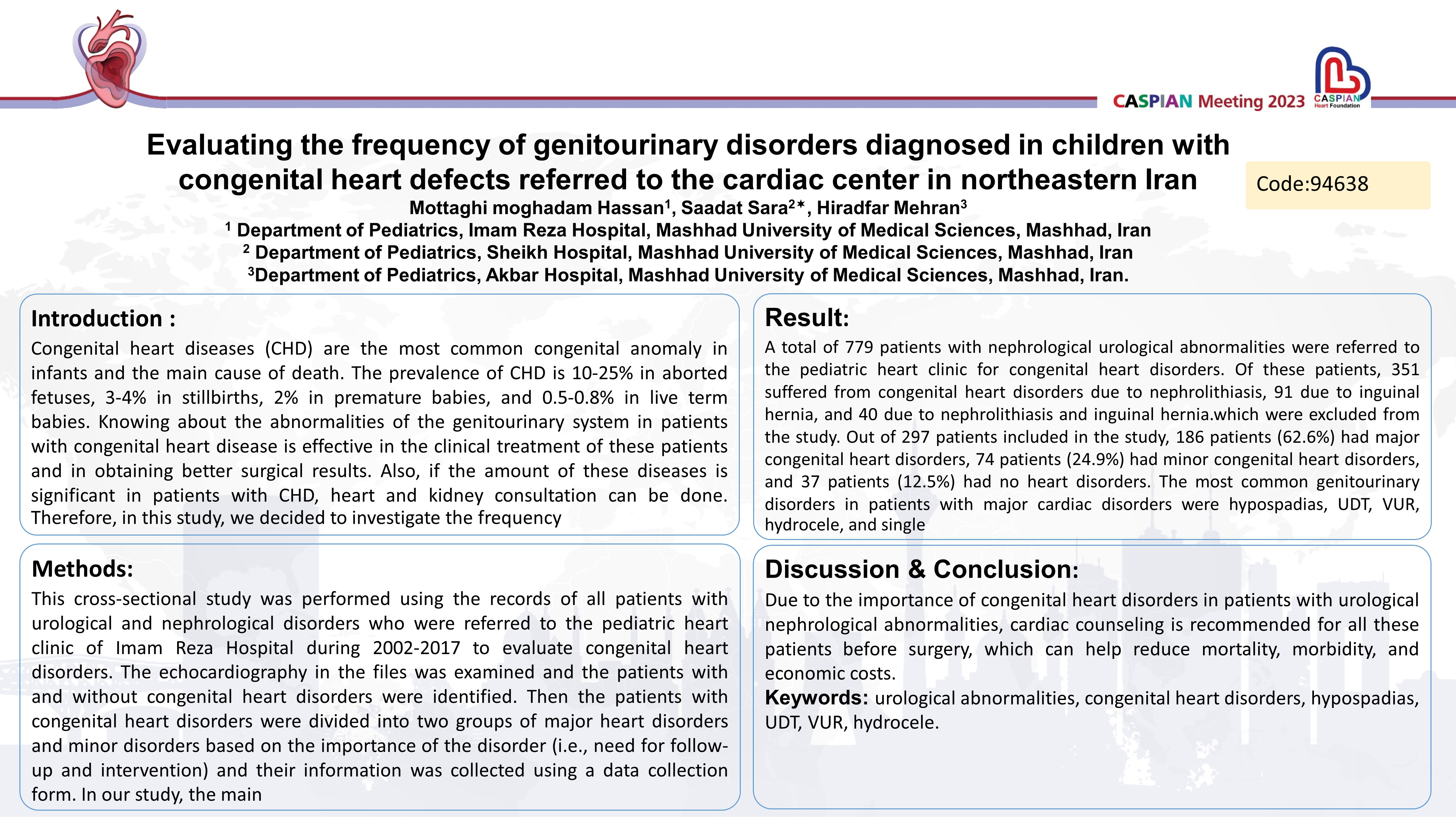Evaluating the frequency of genitourinary disorders diagnosed in children with congenital heart defects referred to the cardiac center in northeastern Iran (Imam Reza Hospital)
Code: G-67583
Authors: Mottaghi, Moghadam Hassan, Saadat, Sara © ℗, Hiradfar, Mehran
Schedule: Not Scheduled!
Download: Download Poster
Abstract:
Background
Congenital heart diseases (CHD) are the most common congenital anomaly in infants and the main cause of death. The prevalence of CHD is 10-25% in aborted fetuses, 3-4% in stillbirths, 2% in premature babies, and 0.5-0.8% in live term babies . Knowing about the abnormalities of the genitourinary system in patients with congenital heart disease is effective in the clinical treatment of these patients and in obtaining better surgical results. Also, if the amount of these diseases is significant in patients with CHD, heart and kidney consultation can be done. Therefore, in this study, we decided to investigate the frequency
Methods
This cross-sectional study was performed using the records of all patients with urological and nephrological disorders who were referred to the pediatric heart clinic of Imam Reza Hospital during 2002-2017 to evaluate congenital heart disorders. The echocardiography in the files was examined and the patients with and without congenital heart disorders were identified. Then the patients with congenital heart disorders were divided into two groups of major heart disorders and minor disorders based on the importance of the disorder (i.e., need for follow-up and intervention) and their information was collected using a data collection form. In our study, the main
Results
A total of 779 patients with nephrological urological abnormalities were referred to the pediatric heart clinic for congenital heart disorders. Of these patients, 351 suffered from congenital heart disorders due to nephrolithiasis, 91 due to inguinal hernia, and 40 due to nephrolithiasis and inguinal hernia.which were excluded from the study. Out of 297 patients included in the study, 186 patients (62.6%) had major congenital heart disorders, 74 patients (24.9%) had minor congenital heart disorders, and 37 patients (12.5%) had no heart disorders. The most common genitourinary disorders in patients with major cardiac disorders were hypospadias, UDT, VUR, hydrocele, and single
Conclusions
Due to the importance of congenital heart disorders in patients with urological nephrological abnormalities, cardiac counseling is recommended for all these patients before surgery, which can help reduce mortality, morbidity, and economic costs.
Keywords
urological abnormalities, congenital heart disorders, hypospadias, UDT, VUR, hydrocele.
